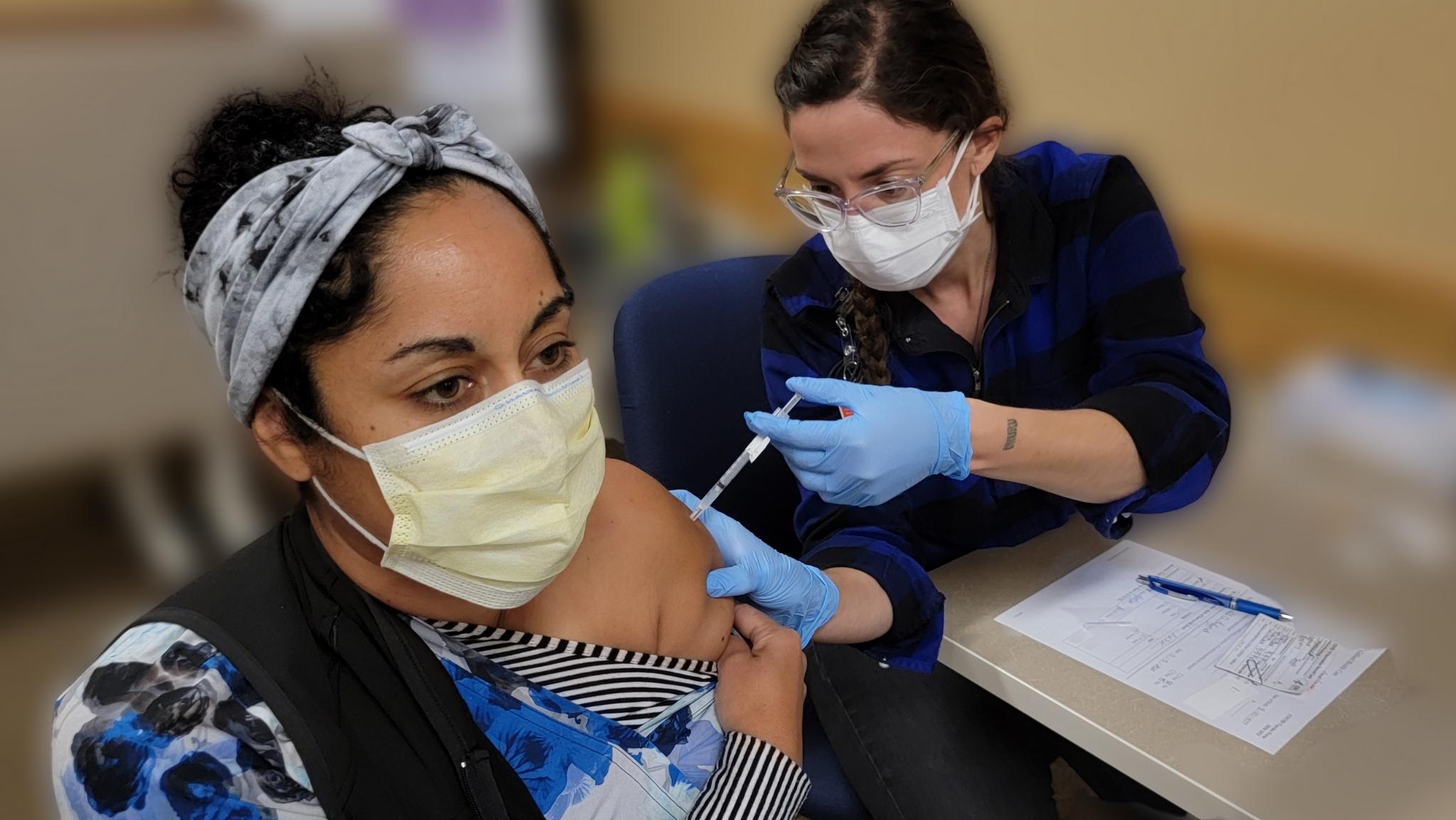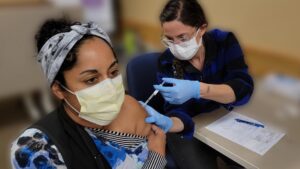
By Dr. Josh White
Gifford Chief Medical Officer
Kids are back in school, trees are showing hints of color and local pharmacies are starting to advertise, “Get Your Flu Shots Here!” But it’s a weird year. We’re on the tail end of a pandemic that is bringing all kinds of new vaccinations and boosters. Viral patterns are also abnormal. So, what should we do when it comes to flu shots and COVID vaccine boosters?
Let’s begin with what we might expect.
Influenza follows the winter around the globe. Our summer is the Southern Hemisphere’s winter which means Australia is currently wrapping up its own 2022 Flu season. This year, Australia has experienced the worst flu season to occur in the last 5 years.
Between 2010 and 2020, there were between 140,000 and 710,000 U.S. citizens hospitalized from influenza each year, depending on flu severity. Thus, we can reasonably expect that the U.S. will be on the upper ends of those numbers this year.
The next question is, will the flu vaccination work?
To begin with, we need to understand that nothing in medicine is 100% effective. Human bodies just don’t work that way. The influenza virus makes matters worse by mutating rapidly. While epidemiologists are examining active strains in the Southern Hemisphere and building this year’s vaccine, it’s not unusual that a mutation will allow that virus to escape some of the protection of the vaccine. Despite those realities, influenza vaccines are generally quite good. Studies have demonstrated that in an average year, the influenza vaccination reduces the risk of illness by 40 to 60%. That’s a lot less suffering and a lot fewer healthcare resources utilized at significantly less cost. It also means a decrease in missed work time and most critically, fewer amount of deaths.
When do you get your flu shot?
Immunity from a flu vaccination has a limited lifespan. The typical influenza vaccination provides around 6 months of protection. Traditionally here in Vermont, we don’t start to see an uptick in influenza activity until mid-December, and we don’t see a return to baseline until late April. This means that a September vaccination might not protect you through the entire flu season. A good rule of thumb for years past is that you don’t need influenza protection before it gets cold.
Is it safe to get the influenza vaccine on top of the Covid-19 shots and boosters?
It’s something a lot of people in the public are asking about and it’s a good question, but not something that you have to worry about. Your immune system is exposed to thousands of foreign antigens every day. Unknowingly, you are constantly dealing with bacteria, viruses, pollens and motes of dust. Being confronted with something new is what your immune system does and a few more antigens in vaccination are not dangerous. Fortunately, the risk for serious complications from an influenza vaccine is very, very low. The feared neurological complication, Guillaine’- Barre, occurs in around 1-2 cases per million. Meanwhile, influenza mortality for 18-49-year-olds in 2019 was 16 per million, and 220 per million for people over age 65. Not getting vaccinated is unquestionably the riskier choice.
According to the Vermont Department of Health, Omicron-specific COVID-19 boosters are now available in Vermont. There is no charge for getting the booster. The updated booster is for people 12 and older who have completed their primary COVID-19 vaccine series and received their last booster or additional dose at least two months ago. Look for Pfizer Bivalent Booster 12+ and Moderna Bivalent Booster 18+ in the list of walk-in clinics. Bivalent boosters are also available at some pharmacies across the state. Contact pharmacies directly for details on available products and scheduling. Boosters will be arriving in doctors’ offices in the coming weeks.
Here’s to a happy and healthy winter for all of us!

